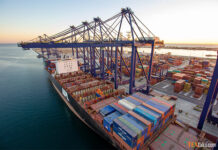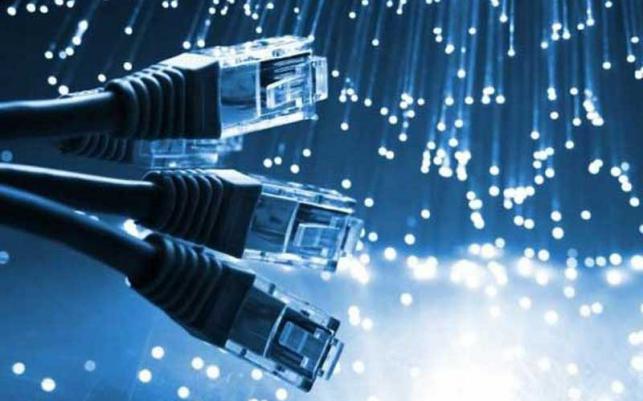The curse of slow internet speeds and complaints about it seem to be a daily ritual here in Pakistan. Open social media websites like Twitter and it is quite common for users to be complaining about Pakistan Telecommunications Limited (PTCL) poor internet services in respect to slowness and disconnections. But now it seems, submarine cable cuts have become a regular fixation as it disrupts the internet and causes connectivity issues to millions of users in the country.
On Saturday, it was reported that another submarine cable IMEWE3 had been severed near Jeddah, Saudi Arabia. IMEWE3 provides the bulk of the country’s internet bandwidth and remains one of the critical backbone in terms of its significance. A few weeks ago, it had been reported that TW1 and SEA-ME-WE4 had also been severed, which till now is still undergoing repair and remains offline. Pakistan’s reliance is now on three other submarine cables now; namely SE-ME-WE 3, AAE-1 and SEA-ME-WE 5.
But submarine cable cuts are nothing new, back in July 2005 SEA-ME-WE 3 which then was Pakistan’s sole way of internet connectivity to rest of the world had suffered disruption 35 kilometers of Karachi. It resulted in a complete internet outage for two weeks, which impacted 10m consumers.
The brunt of this outage was borne by businesses which suffered major losses including TRG, the outsourcing firm whose operations also got affected as a result. PTCL then had to divert the internet traffic to satellite backups, which helped in restoring internet connectivity but it remained abysmally slow in the aftermath of it.
Major disruption was suffered by banks, whose online banking operations stopped working, over Rs15m losses were suffered by internet service providers (ISPs) as per ISPAK and call centers suffered losses to the tune of $1m. Stock exchange trading was also affected and airline reservation systems also underwent through considerable problems. International direct dialing (IDD) didn’t work for two days as GPRS services for mobile operators also stopped working.
As explained above, this internet outage brought everything to a complete halt. Now the dynamics are entirely different, back in 2005 majority of the population didn’t have access to internet or businesses weren’t running online as they are today. But now, with the advent of 3G and 4G services in Pakistan and a rising internet subscriber base majority of which is connecting via affordable smartphones, it begs the question as to what sort of planning has been undertaken by the Pakistan Telecom Authority to prevent such a scenario again.
Planning on part of relevant authorities seems to be poor and myopic. As recently reported, regionally Pakistan has the least number of submarine cables providing internet connectivity to the country totalling six of which five have been laid down in last 14 years. This begs the question to the fact, have the incumbent planners been sleeping for all these years? Are they even aware of what the repercussions could be?
Laying submarine cables doesn’t happen overnight and needs an investment to the tune of millions of dollars, which takes years to get commissioned. As mentioned above, unlike in the year 2005, companies and startups in the country are solely reliant on the internet as a major way of conducting their operations and source of revenue for them.
Established entities may have the cushion to suffer from losses emanating due to submarine cable cuts which slow down or degrade internet connectivity, but upcoming startups and entrepreneurs do not have that luxury. For them, it is a make or break situation, the internet is a lifeline for their survival but is like water which also guarantees its existence. Internet outage lasting days in the current scenario could have disastrous consequences for the whole country and this time its impact could be much severer than what it was in 2005.
The cut reported today affected consumers across the country, as majority had no access to the internet. Booking cabs from ride hailing services like Uber and Careem would have been impossible in this scenario and those solely dependent on it as a means of travelling must have been severely impacted. And also, those involved in freelancing, will have their work cut-out as internet connectivity could make them miss client deadlines and result in loss of work and their source of income could get jeopardized.
We are sitting on a ticking time-bomb waiting to go kaboom in terms of a complete internet blackout. Besides businesses, a lot of students now rely on the internet for their studies and to research for project purposes. It is a vital source of communication lifeline for majority of our populace, which uses Whatsapp or Facebook Messenger to talk via video chat to their loved ones abroad or across the country.
In this digital day and age, internet connectivity is taken for granted but the lack of planning on part of PTA and other relevant authorities is worrisome. First what needs to be done are proactive contingency measures which need to be put in place in event of such a catastrophe, preparedness is of critical importance.
Infrastructural upgrades need to be undertaken with specific focus on planning and forecasting what the internet usage growth patterns with respect to the future and what would be the requirements. As a country with a median of population among 24-35 age bracket being in the majority, it is important for relevant authorities to install submarine cables to meet the rising demand of internet usage, which won’t be going down anytime soon.
























